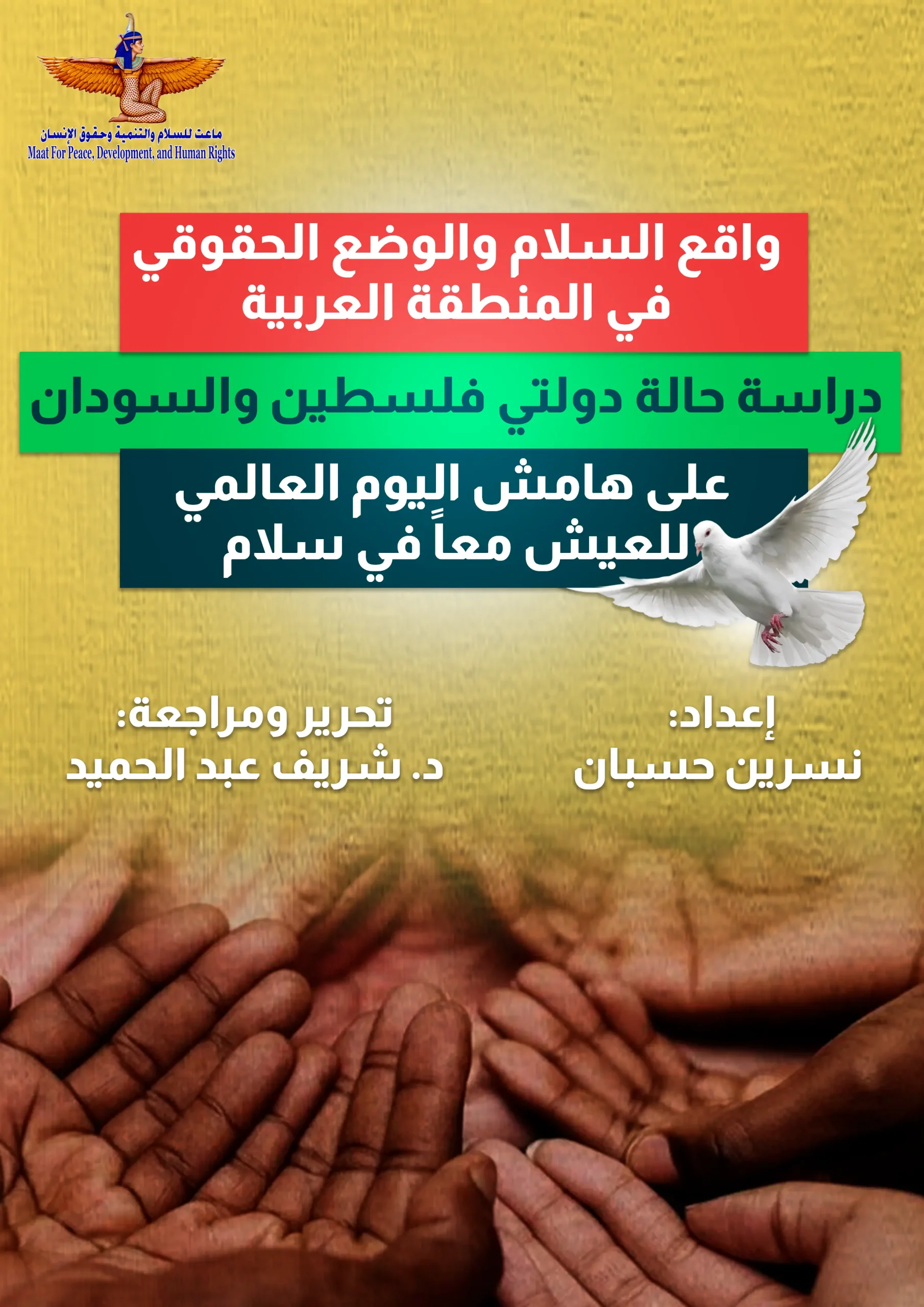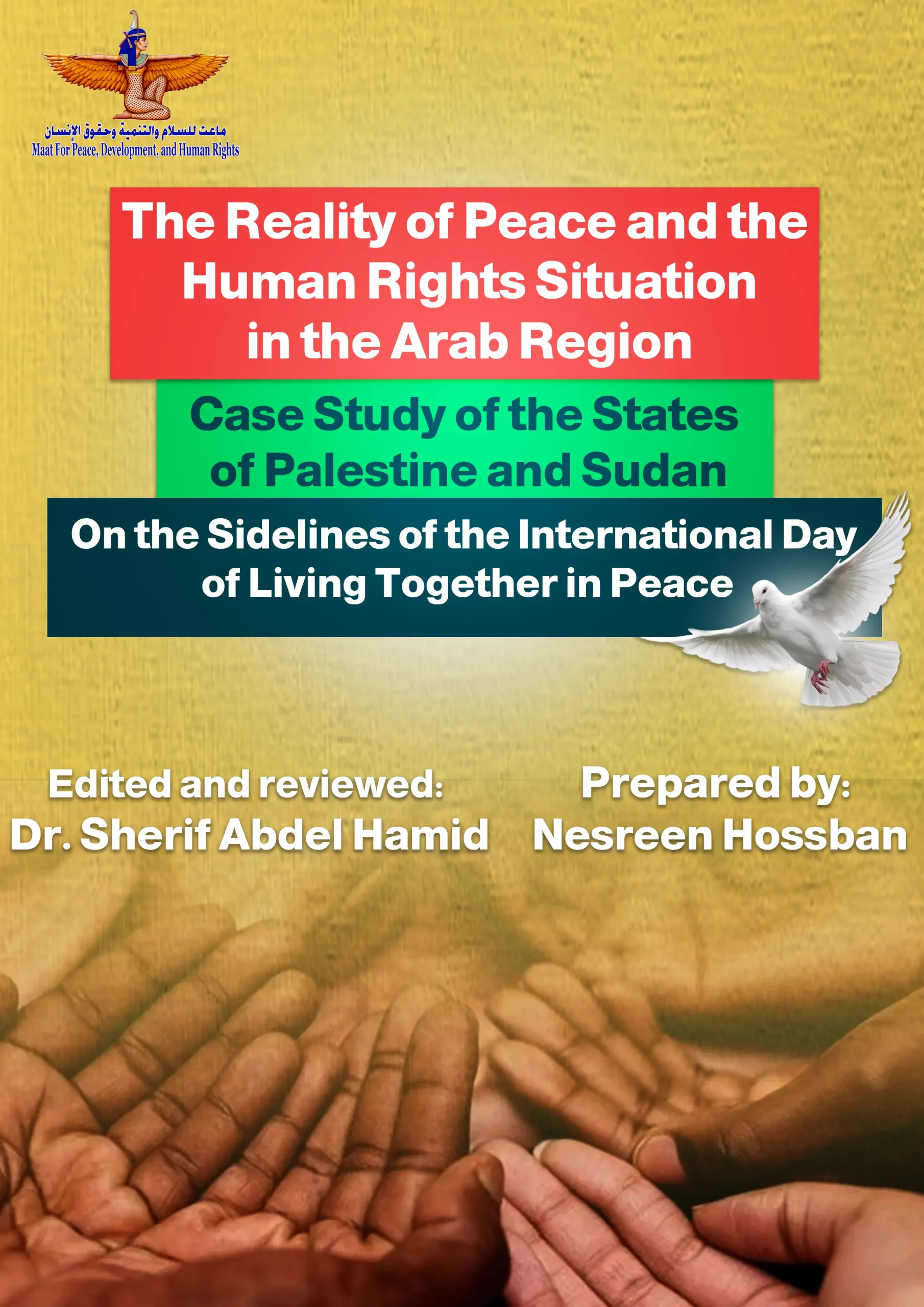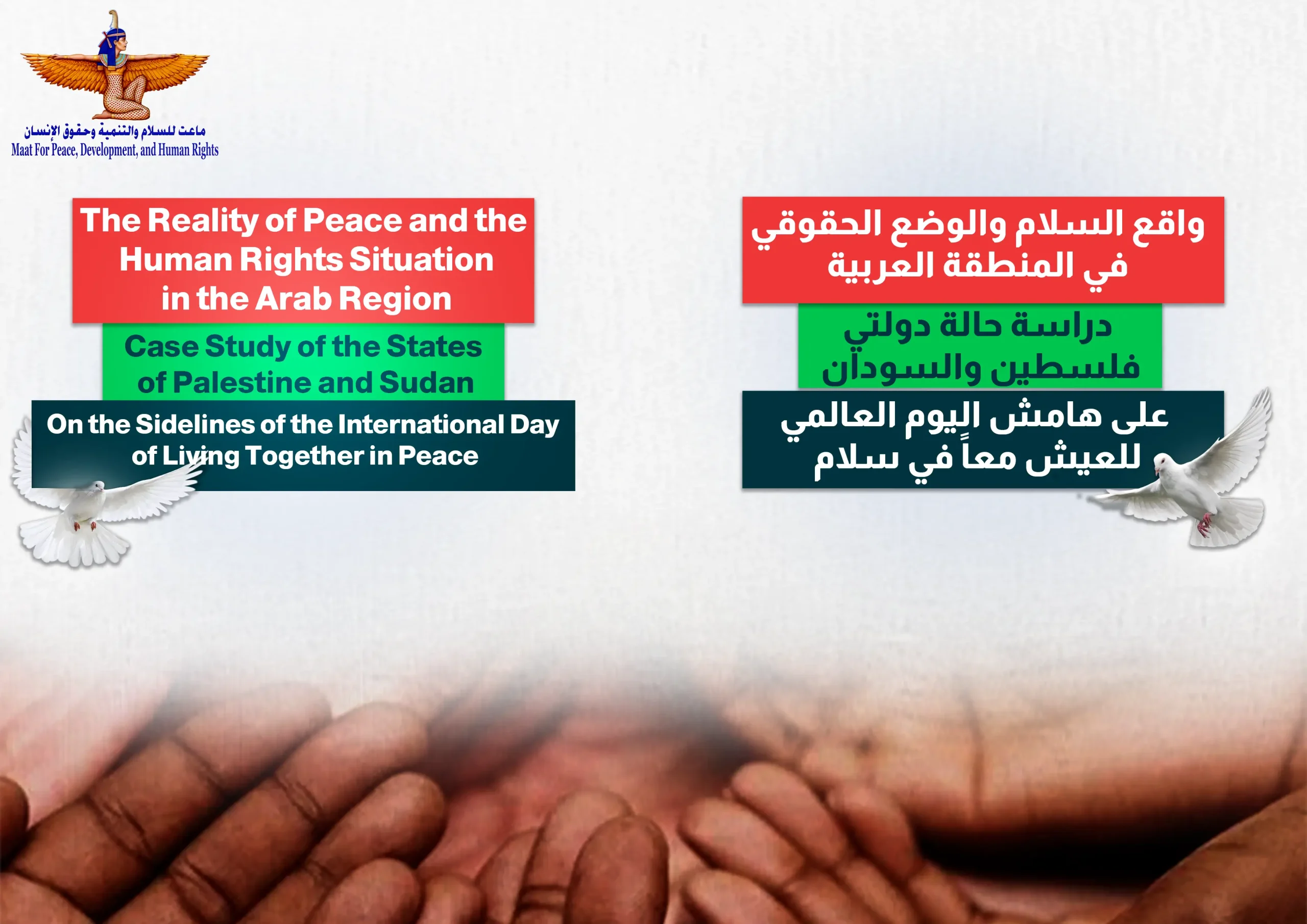On the sidelines of the International Day of Living Together in Peace, Maat issues a new study dealing with the crises of Palestine and Sudan
“Okeil”: We demand the necessity of an immediate and unconditional ceasefire in Palestine and Sudan as the first step for peace in the region.
"Nesreen Hossban": We call for mobilizing international support and providing it to all Palestinian and Sudanese civil society organizations
Today, May 16, is the International Day of Living Together in Peace, in accordance with United Nations General Assembly Resolution No. 72/130, with the aim of human societies coexisting despite their differences. The United Nations General Assembly affirmed that this day is the best way to mobilize the efforts of the international community to promote peace, tolerance and solidarity, Expressing the desire of community members to live and work together to build a world of peace and solidarity. Despite this, some countries were not spared from armed conflicts that resulted in decades of devastation and instability, and the citizen was the main victim of those conflicts that did not respect the limits of international law obligated to protect innocent civilians and their public facilities during times of war and crises.
On this International Day, Maat Association for Peace, Development and Human Rights issued a study on “The reality of peace and the human rights situation in the Arab region” focusing on the cases of Sudan and Palestine, in order to highlight the deteriorating human rights situation in the two countries as a result of unprecedented violations of basic rights and freedoms and to look forward to the most prominent arab roles as well as the roles of civil society to denounce these actions.
Commenting on the study, Ayman Okeil, The international human rights expert and head of the Maat Association, said that the situation in the states of Palestine and Sudan did not stop at the point of “conflict,” but rather these crises went beyond this scope and led to the commission of “war crimes and the crime of genocide” that destroyed the rights of the two peoples.
Okeil called for the necessity of an immediate and unconditional ceasefire in both countries as one of the first pillars of peace in the Arab region, stressing that this is achieved by the international community exerting pressure on the warring parties and imposing strict sanctions that prevent the war crimes and crimes against humanity they commit. The human rights expert also called on the Arab League to take more stringent decisions to challenge these violations that affect all humanitarian laws and treaties and to prevent any attempts to bring about peace.
While Nesreen Hossban, The Researcher in the Unit for Combating Hate Speech and Violent Extremism at the Maat Association, demanded the need to mobilize international support and provide it to all Palestinian and Sudanese civil society organizations and their representatives in general in order to support their efforts, which are considered a basic condition for supporting the peace-building process in the Arab region. "Hossban" also called on the Arab countries to take into account, within the framework of their efforts, the importance of supporting the affected victims and not to neglect their duty to contain these innocent people by providing support in all possible ways.

 |
 |
shortlink: https://maatpeace.org/en/?p=42151












